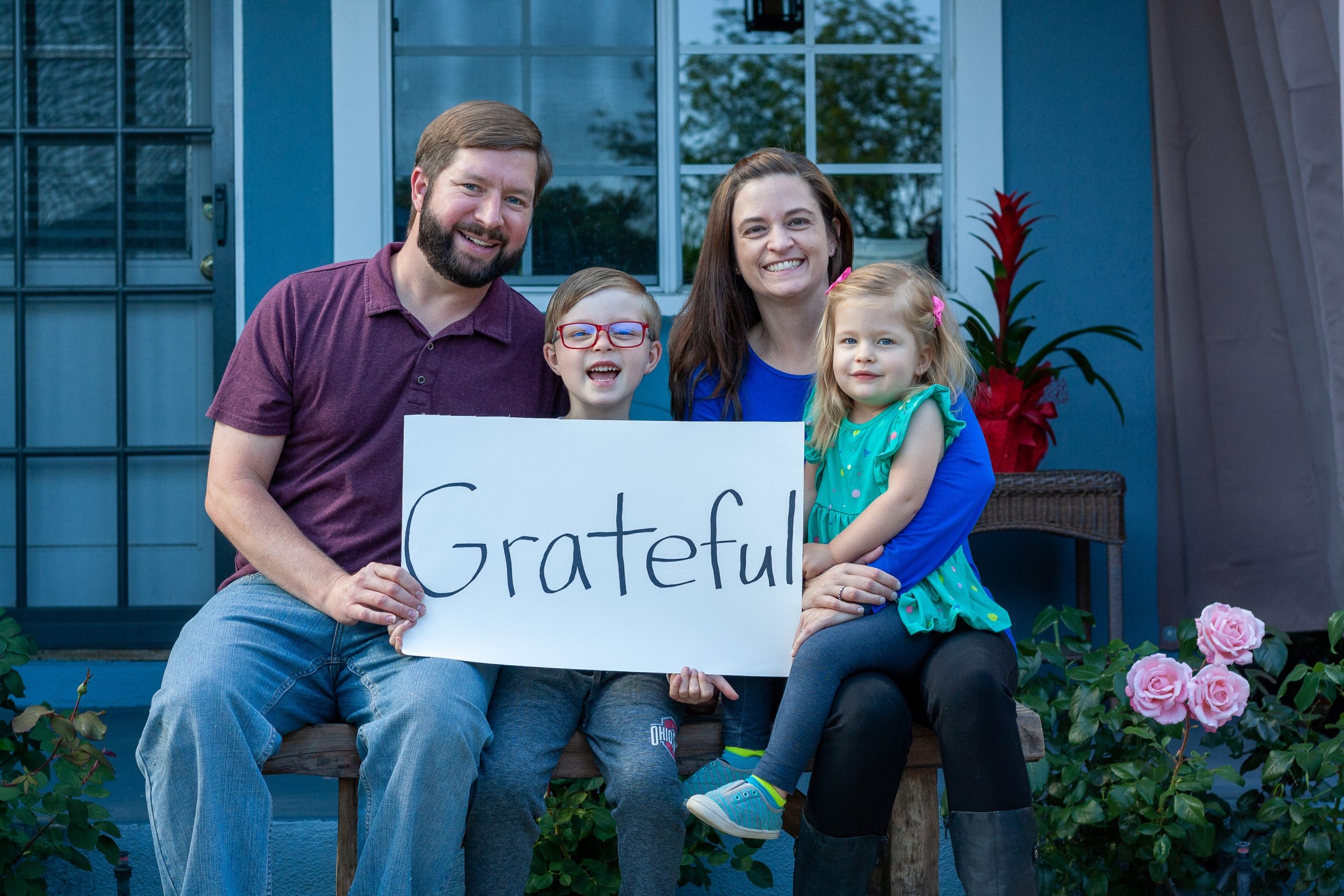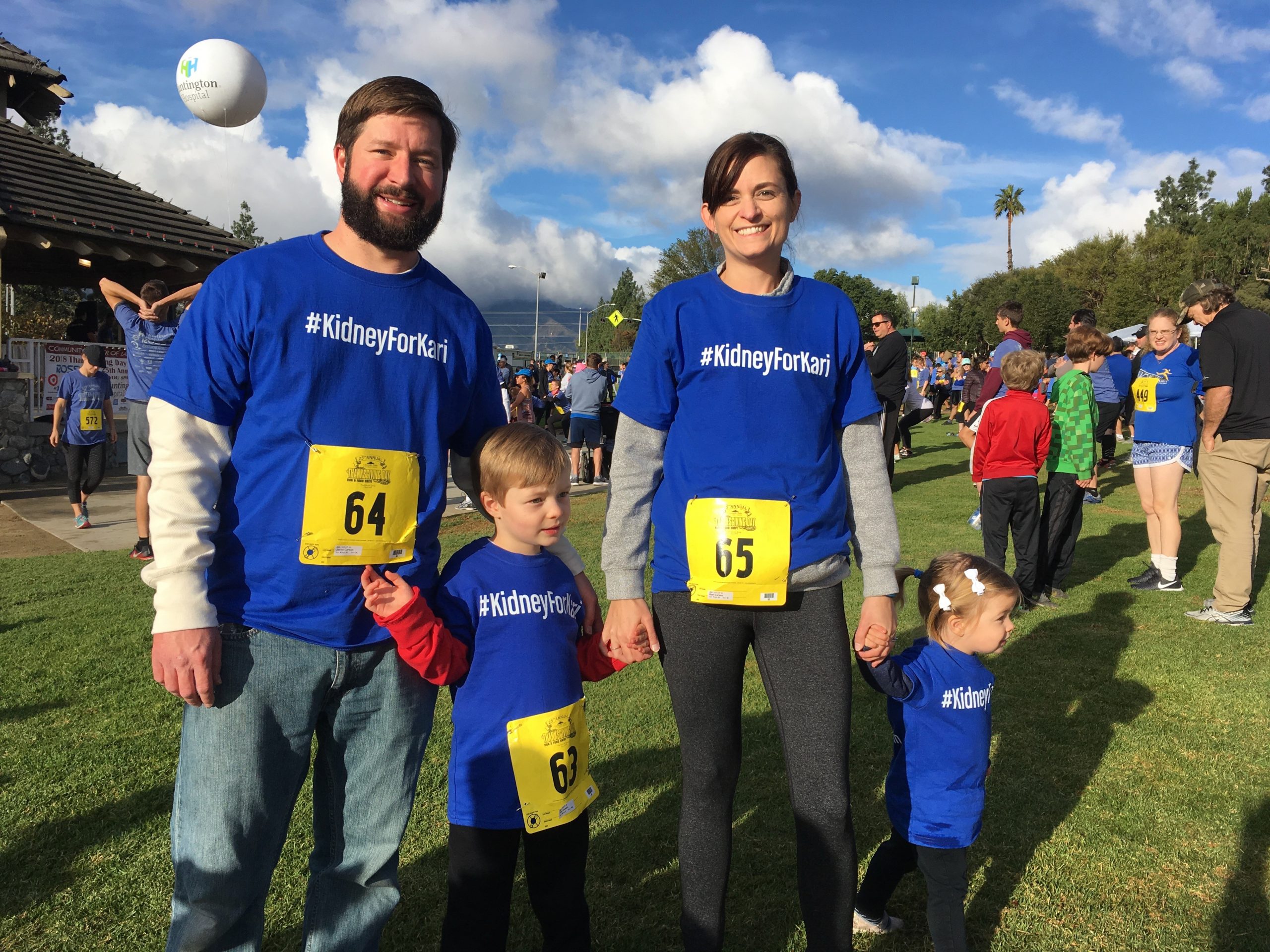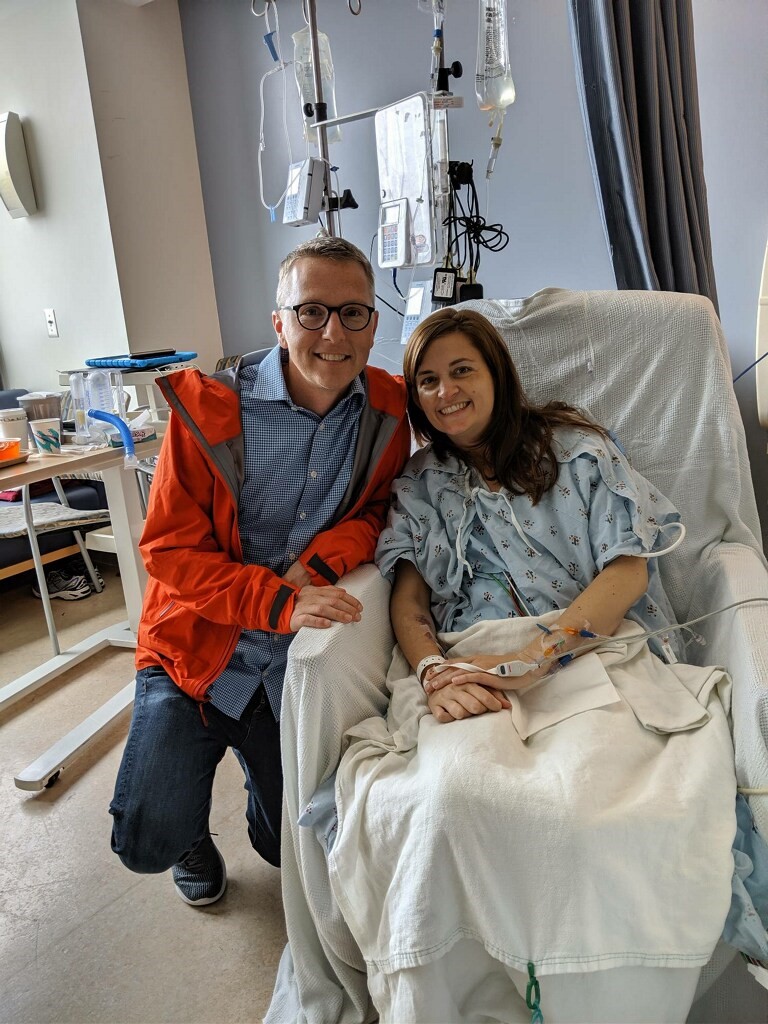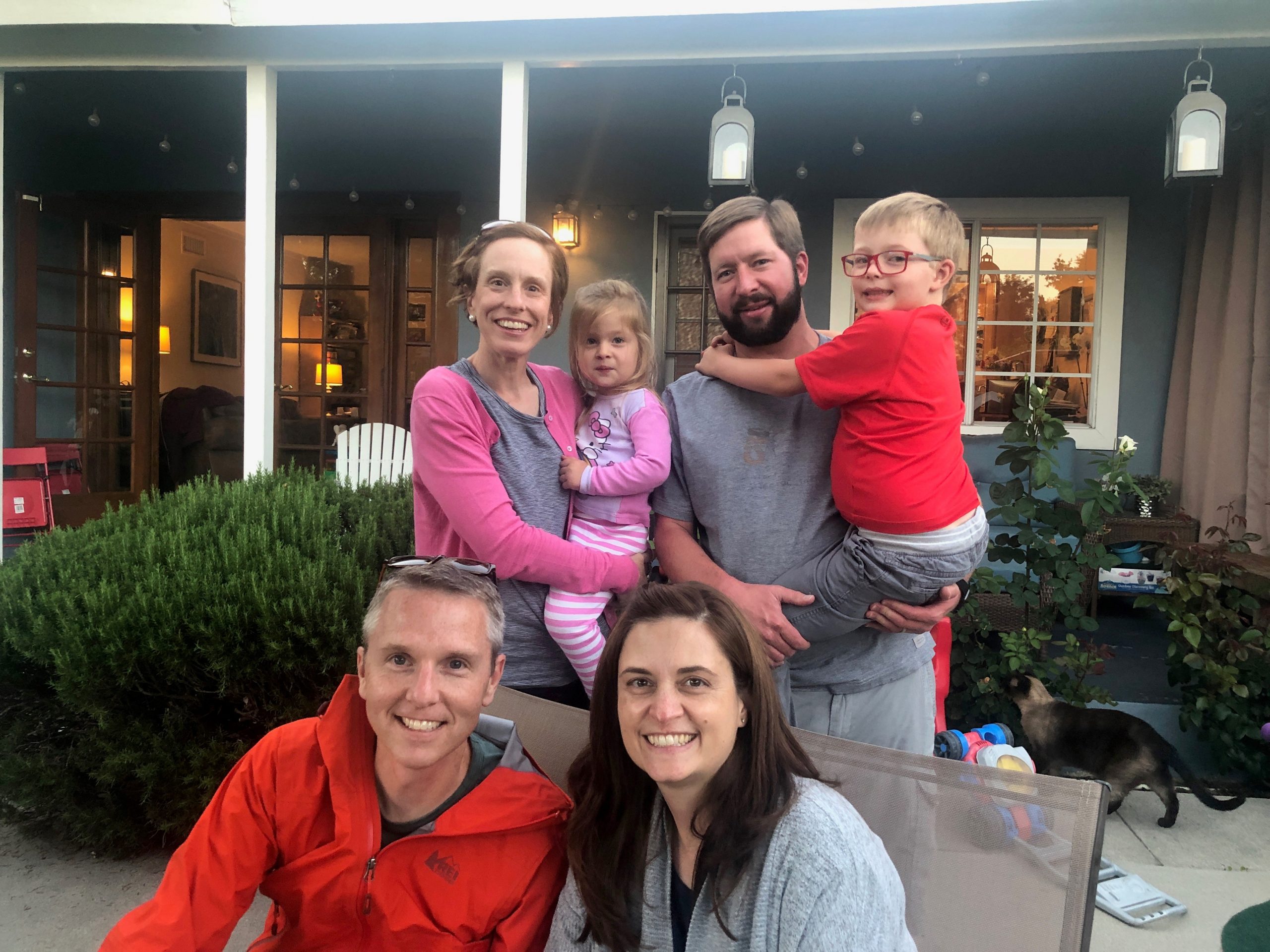Published February 13, 2020
Earlier this week, we spoke to Dwight about the part he played in helping Kari find a kidney donor. Today, in honor of National Donor Day on February 14, we’re sharing Kari’s incredible story.

PKDF: What is your PKD story and how did you become involved with the PKD Foundation?
Kari: After giving birth to my two children, I saw a rapid decline in my GFR, going from 60% to 30%, and within two years after my daughter’s birth, it dropped to 20%. I knew it was time to get some help, and while my primary nephrologist was extremely supportive, I wanted to investigate seeing a PKD specialist. Also, because there was so much PKD in my family, there was no one to donate a kidney. In fact, my sister only found out that she has PKD as a result of being tested to donate to me.
 PKDF: What made you reach out to the Los Angeles Chapter of the PKD Foundation for help?
PKDF: What made you reach out to the Los Angeles Chapter of the PKD Foundation for help?
Kari: I learned about the PKD Foundation several years ago, but since there is nothing you can do except monitor your status, I didn’t think much about it. That is until my GFR dropped and I needed help in figuring out what my next steps should be. I use Facebook for my business as a realtor, so I reached out to the Los Angeles Chapter of the Foundation on Facebook. Dwight Odland, the Los Angeles Chapter Coordinator, responded the same day. He knew so much and was so helpful.
Dwight referred me to the UCLA transplant clinic for medical advice and Harvey Mysel, Founder and President of Living Kidney Donor Network, for advice on finding a living kidney donor. In fact, Dwight invited us to a presentation that Harvey was doing in Orange County.
PKDF: How did you go about finding a living kidney donor?
Kari: Harvey recommended creating a web page to tell my story. My husband, Jason, and I used Facebook to promote the website, distribute videos, and ask for a kidney donor. It was the most daunting part of the process. One of my hardest decisions was to use my kids, Finn and Tess, to help me ask for a kidney. But Harvey was right; it is important to let people know PKD is a family disease and the transplant would help my whole family — not just me.
We made short — approximately two-minute — videos with captions (as opposed to sound), since many people on Facebook view videos without sound. We quickly learned you can’t get a good short video with a five-year-old and a two-year-old, so the most successful video, with more than 10,000 shares, was a series of still shots of the kids holding up a sequence of cards asking for someone to donate a kidney to their mom.
I was surprised at the momentum our website and Facebook posts created. My husband, a music engineer, reached out to those he knew in the industry, who are very good about promoting and sharing things on Facebook. I also found sharing footage of my children got mommy and neighborhood groups to advocate for me, along with family, friends, and co-workers.
PKDF: What did you learn while asking for a kidney donor?
Kari: One of the challenges I faced during my campaign was letting people know what they could do to help, beyond giving a kidney. So many people want to help, but they just don’t want to be a kidney donor. You need to find a way to let them help, so we kept making videos and telling them to share my story with as many people as possible.
What was also hard, and something I had not anticipated, was not immediately knowing the impact my story was having. At UCLA, the process keeps information about potential donor testing completely separate from the kidney recipient. I understand the reasoning; controlling disappointment if there is not a match, and allowing potential donors anonymity in case they change their minds while going through the evaluation process; but you just don’t know where you stand. It wasn’t until after my donor was found that I heard from more than 10 friends that they had gone in for testing.
Amazingly, my donor, Doug Neumann, was the husband of a woman that lived in the same Ohio neighborhood as my husband, where they were best friends growing up. When he heard from UCLA, he called me and said, “I hear we are a match and I have an extra kidney. Do you want it?”
The next challenge was getting UCLA to proceed with the transplant, because my GFR was only at 18% and they preferred to wait until it was lower before performing a transplant. Once again, I reached out to Dwight, who advocated on my behalf, arguing that to make a kidney donor wait could be risky, as well as inconsiderate, since they had taken the time to get tested and re-arrange their schedule to help me. UCLA agreed to let me proceed.

PKDF: You received your transplant on June 19, 2019. What was that experience like?
Kari: It was a great experience and I went home three days after my surgery. An added bonus was being able to spend some time with Doug and his family, as they had to stay in Los Angeles for 10 days after the transplant for follow-up doctor visits. Once someone gives you a kidney, it makes them like extended family.

PKDF: How has your health changed since receiving your transplant?
Kari: The biggest difference is how much more energy I have. I used to come home from work exhausted and be in bed by 8:30 – 9 p.m. each night. The other notable difference is the sense of relief. You are always aware in the back of your mind that someday your kidneys are going to fail and you could end up on dialysis if you can’t find a kidney.
PKDF: You recently had a nephrectomy — what was that experience like?
Kari: My nephrectomy was on Oct. 4, 2019, and the biggest difference I have found is physical. It is so nice to have my two big kidneys gone. They had been pressing on other organs and causing back pain. I wanted to get them removed as soon as possible to get all of the surgeries behind me. What I wasn’t prepared for was how much more difficult the recovery is after a nephrectomy. I ended up having to be re-admitted to the hospital after my discharge and stayed an extra eight days. So I’m behind on my recovery, but I am at least at home.
PKDF: Your company awarded a $6,000 grant to the PKD Foundation. What made you think of approaching them?
Kari: Compass has a community giving program and they make donations twice a year. I approached them while I was looking for a kidney because I was hoping to create more awareness about the disease and everyone at work was being so supportive. I wasn’t sure if they would give the Foundation anything because they primarily give to local charities, but they approved it. I even found out later that one of the board members reviewing the requests was so moved by my letter, she went and had herself tested to be my donor.
PKDF: Anything else you would like to share?
Kari: I learned you need to advocate for yourself. Both to get a living kidney donor and also to get the medical care you want. Dwight was very important in helping me learn that.
Observed every year on February 14th, National Donor Day is dedicated to spreading awareness and education about organ donation. It is also a day to recognize our loved ones who have given the gift of donation, have received a donation, are currently waiting, or did not receive an organ in time. Share your story, find out more about kidney transplantation, and support National Donor Day.









0 Comments